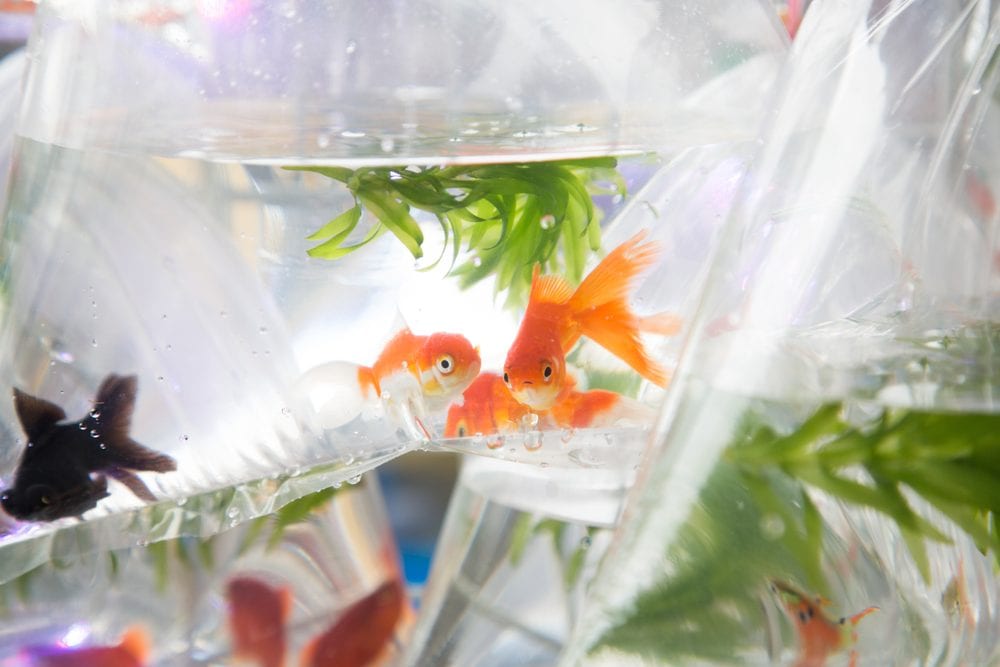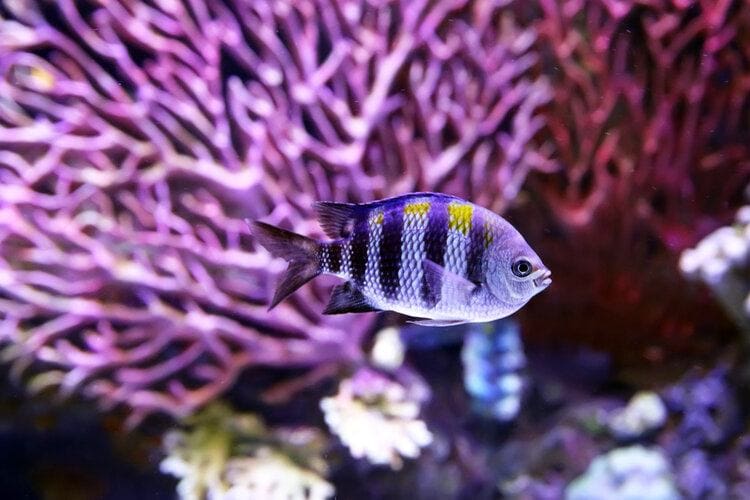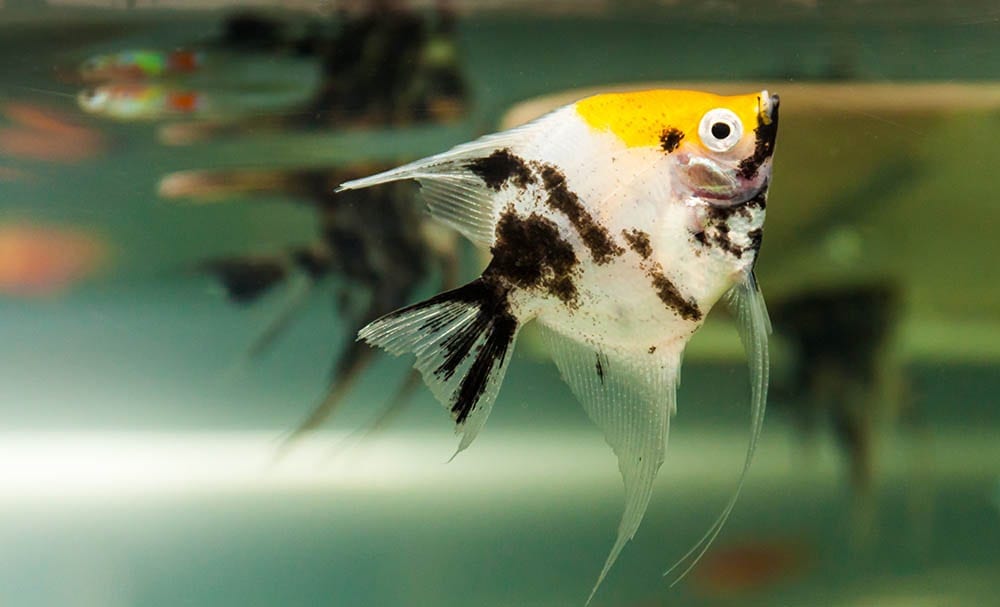How to Calm Down Stressed Fish: 9 Helpful Tips & FAQs

Updated on
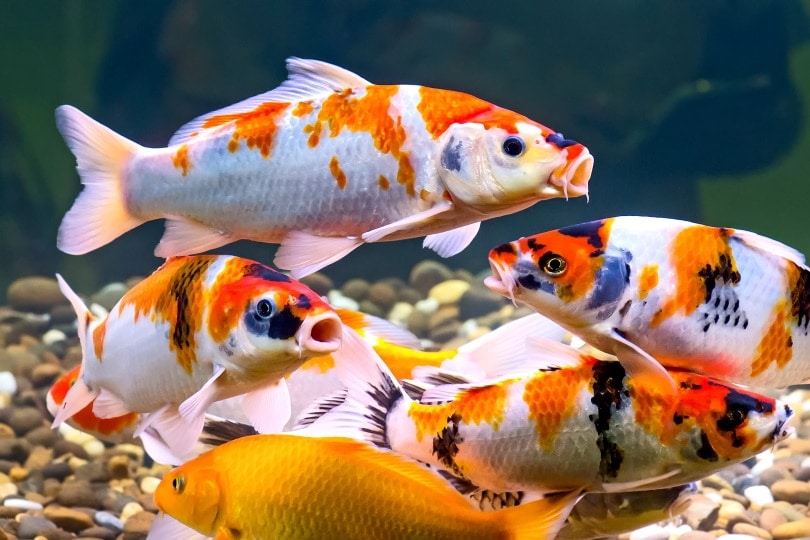
Having stressed-out fish is not good because fish are fairly fragile and sensitive. Eventually, the stress could even lead to the death of your fish. Unfortunately, there are several things that can cause stress in fish, but if you act fast, there are also ways to calm down stressed fish.
Let’s talk about why your fish is stressed, how you can tell, and how to fix the problem.
How Can You Tell If a Fish Is Stressed?
How to tell if your fish is stressed out really depends on the type of fish, as well as the level of stress it is experiencing. However, there are a few different telltale signs that your fish may be stressed out, which we will cover in detail below. What is important to note is that if your fish is stressed out, you might notice that its appearance is changing for the worse, particularly colors becoming duller and issues with the fins and scales.
Moreover, you may also notice changes in behavior. Some fish dart around the tank when they are stressed out, some don’t move much at all, and some just do some very odd things. Simply put, if your fish is displaying behavior that is uncommon for it or for that species of fish, the chances are that it is stressed out.
Keep reading for a comprehensive list of signs or symptoms of a stressed fish.
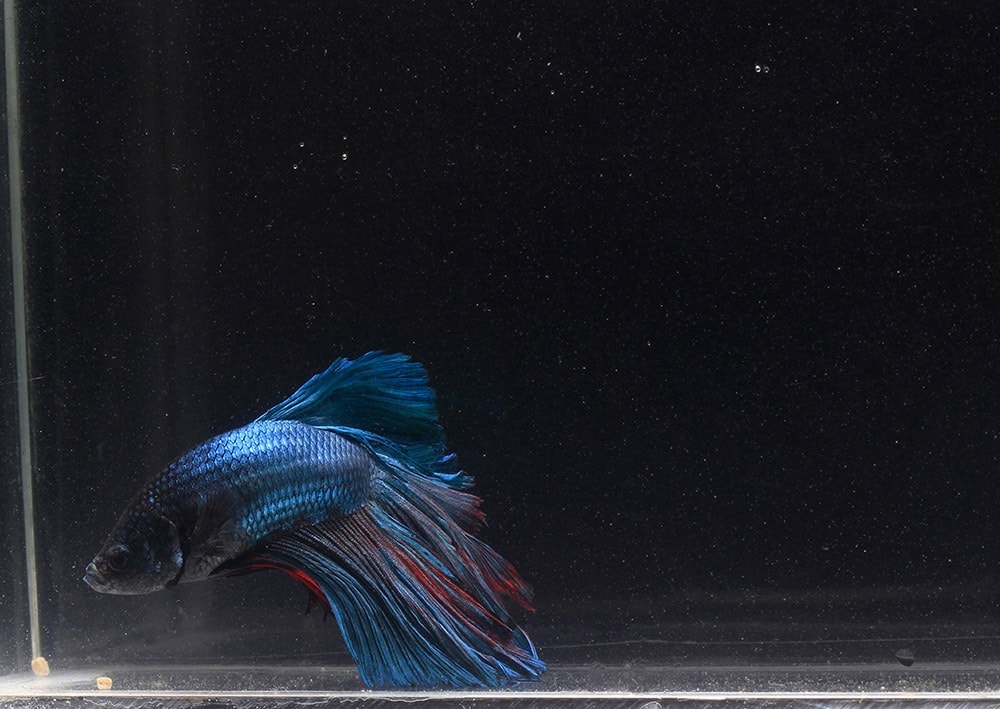
What Causes Fish Stress?
The unfortunate reality is that fish are some of the most fragile creatures around, especially when it comes to keeping them happy and healthy inside of an aquarium, and yes, several factors can cause stress in them.
Here is a complete list of possible causes that can and often do lead to stressed-out fish.
1. Wrong pH Level
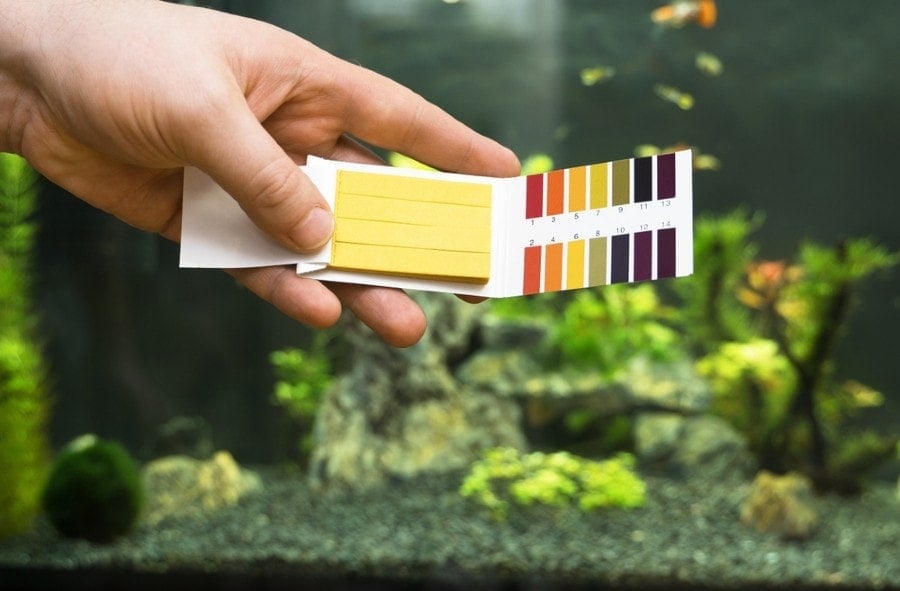
One of the main causes of stress in fish is if the pH level is not at the proper level for the species in question. Even if the pH level is within the acceptable range, if it keeps fluctuating within that range, it can also cause stress in fish.
2. High Ammonia & Nitrite Levels
Another leading cause is too much ammonia and nitrite in the water. This can be caused due to infrequent water changes, a filter that is not working properly, or just a lack of filtration. High ammonia levels can cause severe physical symptoms and will eventually lead to death.
3. Wrong Tank Mates

If your fish is housed with other fish that are aggressive, territorial, or just bullies, they can harass the other fish to the point where it becomes stressed out.
4. Lack of Feeding
A lack of proper feeding and nutrition can also lead to stress in fish. This could be caused by your own improper feeding techniques, by feeding your fish too little or too much, or because other fish are taking away food from the stressed fish.
5. Wrong Temperature
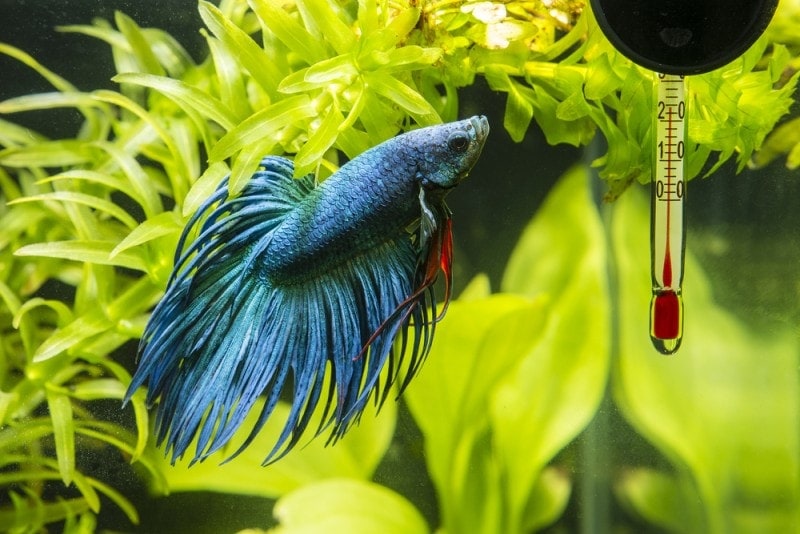
Another significant cause of stress in fish is if the water temperature is not within the acceptable range for the species. Just like with pH, even if the water temperature is within the acceptable range or keeps fluctuating, it can cause stress in fish.
6. Lack of Dissolved Oxygen
If the water does not contain enough dissolved oxygen, it may also lead to stress in fish.
7. Overstocked Tank
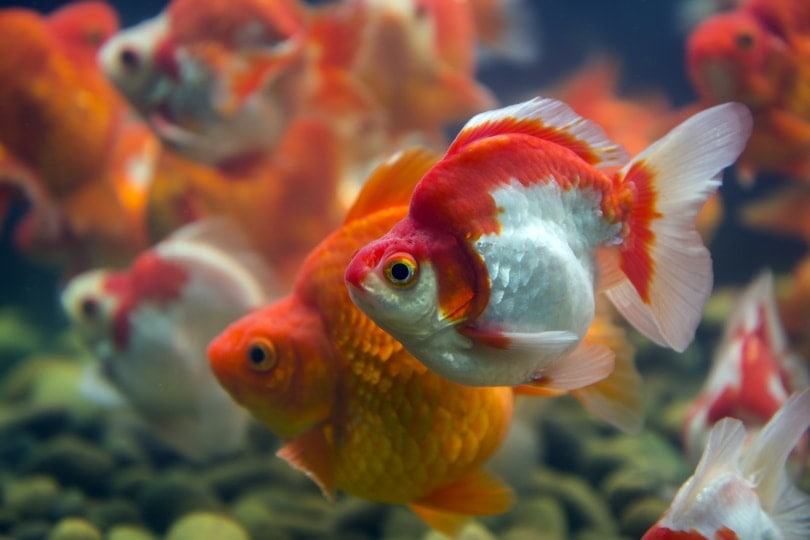
If your aquarium is overstocked, it may also stress out your fish. This is because your fish may not have enough space to feel comfortable because of increased competition for food or low oxygen levels. Related to this, if the tank is too small for the species, it can cause stress.
8. Not Introducing New Fish Correctly
If you improperly introduce new fish to a community tank, it may stress out the new addition and the existing community members alike.
Stressed Fish Symptoms
There is quite a list of symptoms that you may notice if your fish is stressed out. These symptoms of stress can be physical in nature, or they can be behavioral.
Below, we have listed the most important physical and behavioral symptoms of stress in fish for you to keep an eye out for.
Physical Symptom of Stress in Fish: Appearance
- If you have a brightly colored fish, and it becomes much paler in color, chances are that it is stressed out.
- If your fish has white spots on its body, it is a sign that your fish may be suffering from a disease known as ich, something that often occurs in fish due to stress.
- If your fish has red streaking fins, it is another sign of stress.
- Generally speaking, any physical ailments, such as sores, tattered fins, and other physical symptoms, can all be caused by stress. If your fish is stressed out, it leaves it vulnerable to infection from the parasites and bacteria that are naturally present in aquarium water.
Behavioral Symptoms of Stress in Fish
- Darting around the tank, crashing into walls or the ground, and erratic swimming patterns, in general, can all be indications of stress in fish.
- If your fish is constantly hiding or pressed into corners or even pressed against the walls of the tank, these can all be indications of stress.
- If your species of fish are naturally active, but it’s not swimming very much or even listing on its side, this is a strong indication that it is stressed out.
- Fish that are stressed out will often scrape against the gravel or against decorations.
- If your fish has lost its appetite and is not eating its usual amounts, this is another indication of stress.
- If your fish is gasping for air at the surface, it is a sign that your fish is stressed out due to low oxygen levels.
 The 9 Ways to Calm Down Stressed Fish
The 9 Ways to Calm Down Stressed Fish
Thankfully, there are many ways to calm down a stressed-out fish, as well as to prevent stress in the first place.
1. Right Tank Size
Make sure that your fish has enough space to be comfortable. The general rule of thumb is that fish need 1 gallon of water for every inch of fish. However, if you want to provide your fish with the best living conditions, you can always increase that to 2 gallons of water per inch of fish.
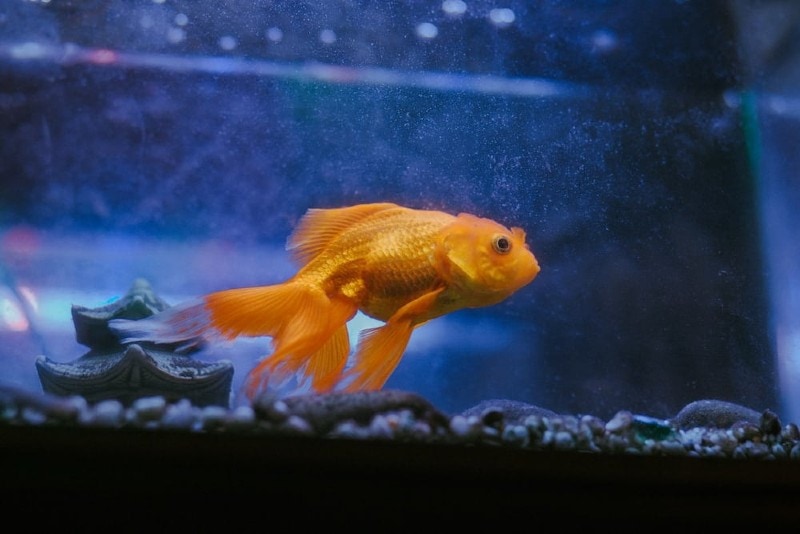
2. Right Tank Mates
Make sure that your fish are housed with tankmates that they feel comfortable with. This means not housing smaller fish with much larger fish that may bully it, act aggressive or territorial, nip its fins, or cause competition for food.
3. Correct Feeding
On that same note, make sure that you feed your fish the proper diet, the proper portions of food, and that you feed them at the right times.

4. Add Natural Barriers
Some fish like to have their own space and a bit of privacy, so make sure to add plenty of natural barriers to your aquarium, and additions like caves and hollow driftwood to allow for some peace and privacy.
5. Temperature
Make sure that the water temperature is within the acceptable range for the species, and ensure that it does not fluctuate. A heater is called for here, as well as an aquarium thermometer.

6. pH Levels
On that same note, you need to do the same thing for the pH level of the water. Make sure that the pH is within the acceptable range for the species, and ensure that it fluctuates as little as possible.
7. A Good Aquarium Filter
You definitely need a good aquarium filter, one that engages in all three major forms of filtration, including mechanical, biological, and chemical filtration, with biological filtration for ammonia and nitrite removal from the water being the most important of all.
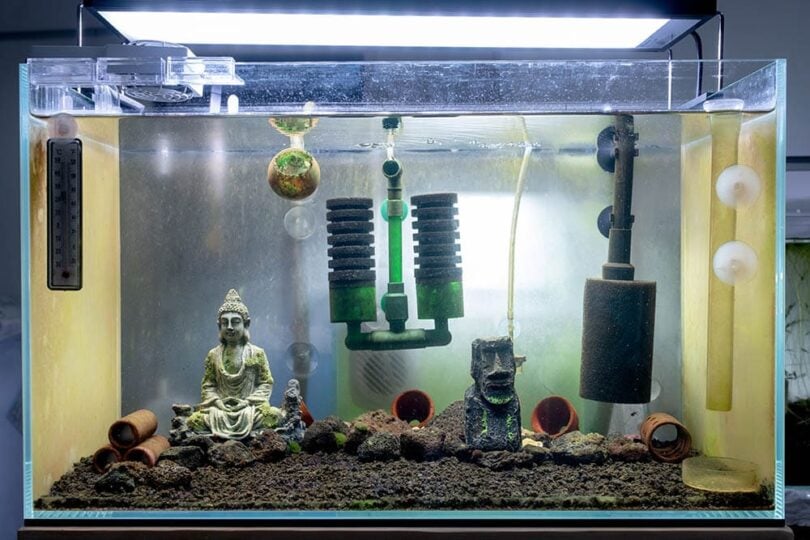
8. Weekly Water Changes
Performing weekly water changes of roughly 30% will ensure clean water and thus lower stress levels.
9. Introduce New Fish Correctly
When introducing new fish to an existing community tank, follow proper introduction techniques. Never directly place a new fish right into the main tank without allowing it to acclimatize itself first.
Do Water Changes Stress Fish?
Water changes generally should not stress fish out, if you do them properly. Most importantly, don’t change any more than 30% of the water per week. Moreover, when adding new water into the tank, make sure that chlorine has been removed, that it is at the right temperature, and that it has the right pH level.
Never change more than 30% of the water per week unless otherwise directed, as this can remove too much of the beneficial bacteria from the water that are responsible for controlling ammonia and nitrite levels.
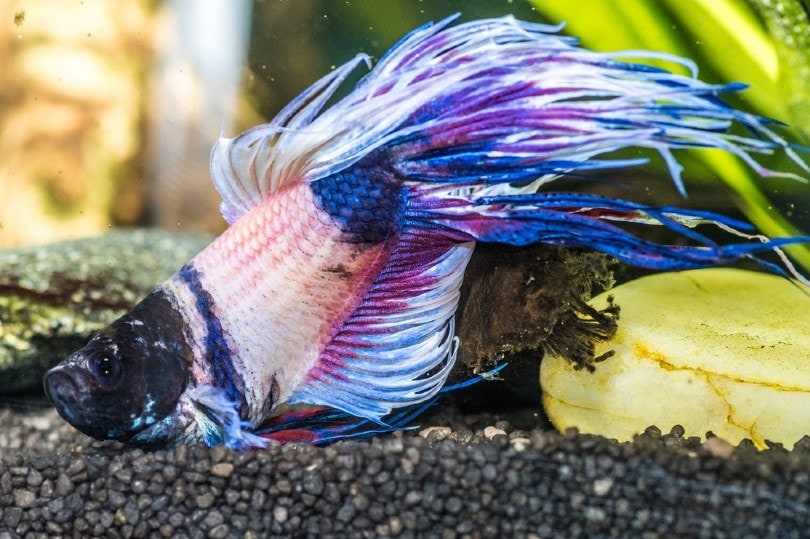
How Long Does Fish Stress Last?
Fish stress can go one of two ways. Either the stress dissipates as you make the appropriate corrections, in which case a few days should be enough for you to notice a difference, or it will continue to get worse until the fish dies.
There is no set timeline for how long the stress will last. However, what we can say is that the faster you act to remedy the underlying cause, the faster the stress will disappear, and without adequate action on your behalf, things will continue to deteriorate past the point of no return.
Conclusion
As you can see, this issue is a bit sensitive because there are so many causes of fish stress, several symptoms, and many solutions.
The most important thing for you to do is to keep an eye on your fish, look for symptoms, figure out what is causing them, and then take the proper actions to fix the issue.
- You Might Also Be Interested In: Why Is My Angel Fish Gasping At The Surface?
Featured Image Credit: TigerStocks, Shutterstock


 The 9 Ways to Calm Down Stressed Fish
The 9 Ways to Calm Down Stressed Fish